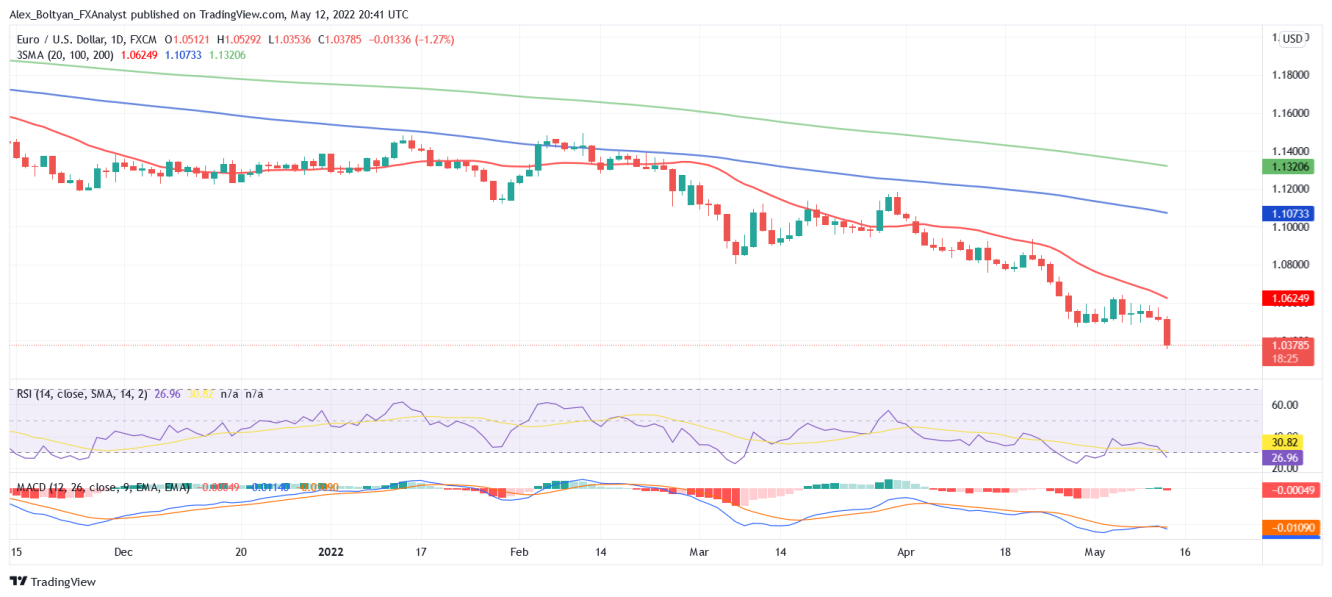The EUR/USD pair finally broke below the 1.0400 psychological level on Thursday and posted its lowest level since January 2017 at 1.0353 during the New York session on broad dollar strength, with the DXY also hitting a fresh two-decade high at 104.92.
The greenback benefited from safe-haven demand flows as the risk-off environment pushed down U.S. yields. The yield on the United States 10-Year note pulled back to 2.86% after hitting a high of 3.203% earlier this week.
Rising tensions between Russia and Ukraine were among the factors triggering risk aversion. Russian Vice President Dmitry Medvedev warned that continued Western financial and military assistance to Ukraine might trigger a conflict between Russia and NATO.
On the other hand, “hawkish” comments from ECB President couldn’t offer relief to the euro. In a speech at the Slovenian Central Bank on Wednesday, Christine Lagarde said she considers it "appropriate" for monetary policy to return to its normal course and hinted at a summer rate hike. Still, Lagarde did not put a date on the decision yet.
From a technical perspective, the EUR/USD short-term outlook remains bearish according to indicators in the daily chart. The RSI shows a steep negative slope entering the oversold territory, while the MACD histogram has printed a red bar.
On the downside, the next target is seen at the January 2017 low at 1.0340. If the pair breaks below this level, it will be trading at its lowest level since 2003 and potentially putting parity on the table. On the other hand, the previous low at 1.0470 is now the immediate resistance level, followed by the psychological 1.0500 mark and the 20-day SMA currently at the 1.0610 area.


